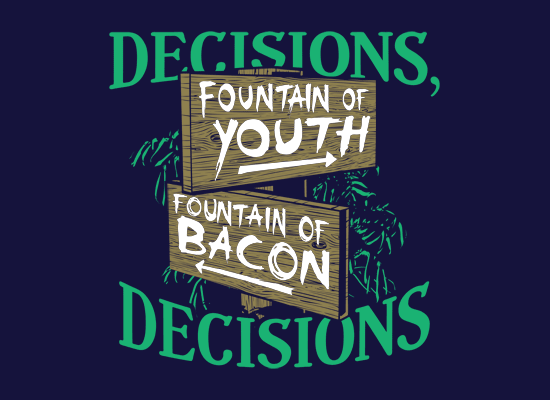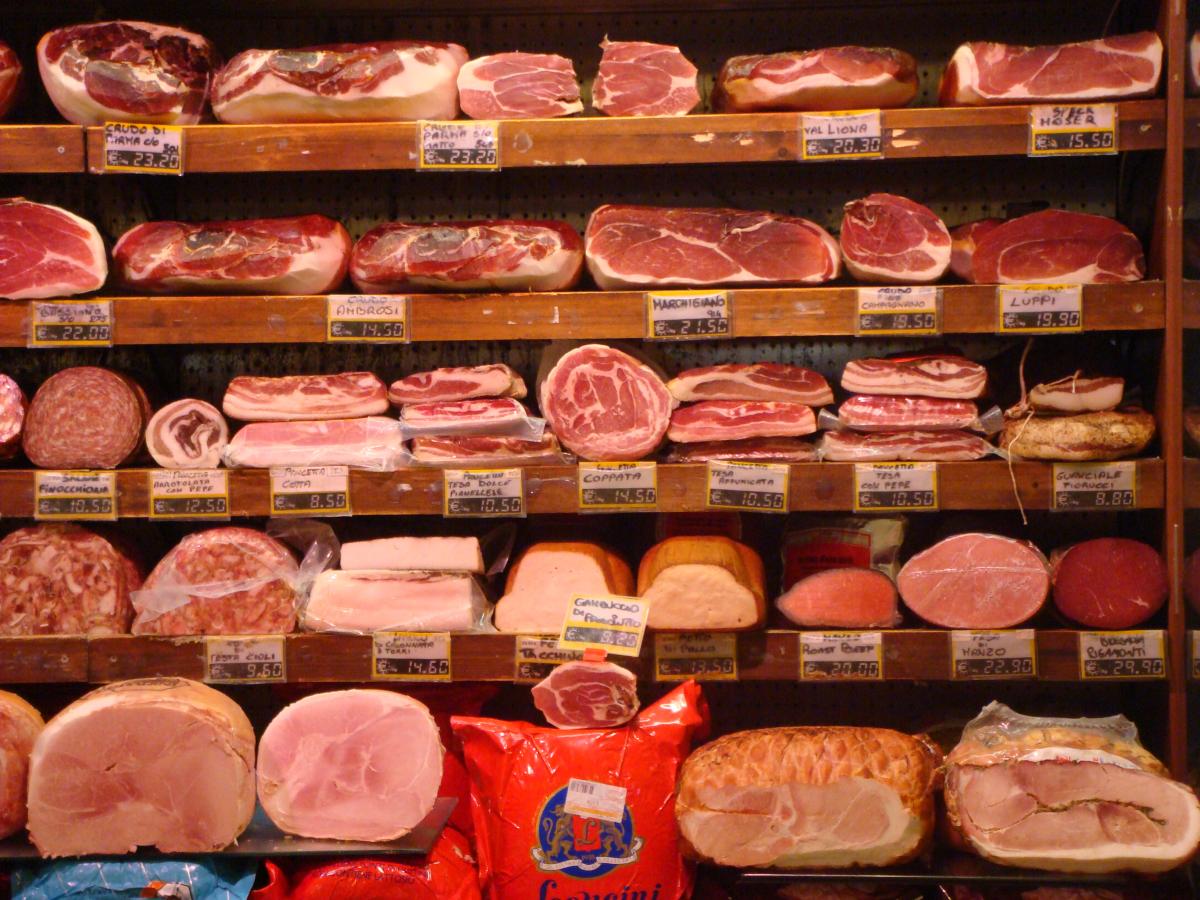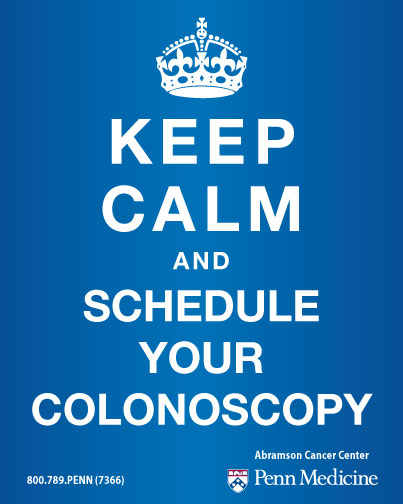
Hats off to Anahad O’Connor of The New York Times, whose article “So Will Processed Meat Give You Cancer?” does a nice job putting into perspective the IARC announcement that processed meats probably cause cancer. In a nutshell, his conclusion is that processed meats probably do cause cancer—but the increase in risk is so small as to be not worth worrying about.
Now it just so happens that nutrition research is a pretty much constant thorn in my side. Since everybody eats, and everybody wants to live forever, there’s a lot of interest in research about what’s good for us and what isn’t. Nutrition studies get more coverage in the press than any other kind of scientific research. But here’s the thing: a really good nutrition study is almost impossible to carry out.
Think about it. A proposal to feed an experimental group an all-meat diet for years and then follow their health outcomes for decades is never going to pass ethical review, no matter how many college kids would be willing to sign up for the all-bacon diet. So we’re left with correlations, and no two studies ever look at exactly the same thing. The result: endless examples of seemingly inconsistent results. Red wine is good for you! But not too much! Drink coffee! No, drink green tea! Cranberry juice is the magic bullet! No, it’s pomegranate juice! And that’s just clear beverages.
 Note that I said seemingly inconsistent results. It’s natural to assume that if one study shows coffee increases cancer risk and another shows it protects against cancer, one of those studies must be wrong. But not so fast: it’s also possible that they’re both wrong or that they’re both right. How? Because if the studies didn’t follow exactly the same people over exactly the same time period and didn’t look at exactly the same outcomes, they’re not really comparable. And if one study looked at the effects of high doses on laboratory mice and one looked at a six-week trial in twelve people, they’re really not comparable. So we should not be so surprised when the studies get different results.
Note that I said seemingly inconsistent results. It’s natural to assume that if one study shows coffee increases cancer risk and another shows it protects against cancer, one of those studies must be wrong. But not so fast: it’s also possible that they’re both wrong or that they’re both right. How? Because if the studies didn’t follow exactly the same people over exactly the same time period and didn’t look at exactly the same outcomes, they’re not really comparable. And if one study looked at the effects of high doses on laboratory mice and one looked at a six-week trial in twelve people, they’re really not comparable. So we should not be so surprised when the studies get different results.
Unfortunately, for all too many people, nutrition studies are a proxy for all of science. The impression people end up with is: “scientists don’t know what they’re talking about—they change their minds all the time!” And that’s unfortunate, because—thank goodness—most areas of science don’t provide such maddeningly varying conclusions (because there are few areas of scientific research that offer as many uncontrollable and even unknown variables as research on long-term effects on human health). The confusion regularly provoked by nutrition studies is really not helpful when it comes to defending areas of science for which the evidence is overwhelming—evolution and climate change, for starters—from the impact of people who have unscientific reasons for rejecting what the evidenc e shows.
e shows.
But back to bacon. The World Health Organization categorizes foods, beverages, and environmental exposures (like smoking and cell phones) according to the quality of the evidence that they cause cancer. So if there are dozens of high-quality studies that all find an association between a certain food and a higher cancer rate, WHO will put that food into its highest risk category: probably causes cancer. That’s a useful thing to know. As I said above, no two nutritional studies are ever exactly comparable. So it’s a really good idea to look at all the studies, rank them according to how strong their evidence is (a prospective study following 10,000 people for a decade would get more weight than a two-week trial with eight subjects, for example), and see whether a clear signal emerges from the noise. And in this case, lots and lots of studies pointed in the same direction; people who eat a lot of processed meats get colorectal cancer at a higher rate than people who don’t. So probably something’s going on there.
But while there’s smoke, there may not be all that much fire. The increase in risk is 18%. Which sounds like a lot—until you find out the baseline risk is 5%. (Work it out for yourself: what’s 5 plus 18% of 5?) For comparison’s sake, smoking increases your risk of lung cancer by 2500%—so if one in ten smokers will develop lung cancer, only about four in one thousand non-smokers will. Furthermore, that 18% increase in colorectal cancer risk from processed meats is between the lowest quartile (people who don’t eat any processed meat at all) and the highest quartile (those who eat a serving of processed meat every day). In other words, if you eat processed meat occasionally, the increased risk is considerably smaller. Armed with that more nuanced information, everyone can make an informed choice about how to balance the joy they get from eating bacon against the anxiety of worrying about colorectal cancer.
 But you shouldn’t assume that if you don’t eat meat, you don’t have to worry about colon cancer, and this is the take-home message with which O’Connor ended his article. He quoted Amy Elmaleh, director of Colon Cancer Canada, who said: “There’s nothing wrong with…reducing your intake of red and processed meat….but there’s a better conversation to have about screening, which is a huge opportunity to prevent colon cancer.” It turns out that screening colonoscopy reduces your risk of dying from colon cancer by a whopping 65%— a lot more than giving up that hot dog you treat yourself to a couple of times a year at the ballpark. So go ahead and enjoy a BLT once in a while, but be sure to sign up for that first colonoscopy when you turn fifty.
But you shouldn’t assume that if you don’t eat meat, you don’t have to worry about colon cancer, and this is the take-home message with which O’Connor ended his article. He quoted Amy Elmaleh, director of Colon Cancer Canada, who said: “There’s nothing wrong with…reducing your intake of red and processed meat….but there’s a better conversation to have about screening, which is a huge opportunity to prevent colon cancer.” It turns out that screening colonoscopy reduces your risk of dying from colon cancer by a whopping 65%— a lot more than giving up that hot dog you treat yourself to a couple of times a year at the ballpark. So go ahead and enjoy a BLT once in a while, but be sure to sign up for that first colonoscopy when you turn fifty.
Photo credit: Grocery store in Rome, by phototram ( via Wikimedia Commons)

